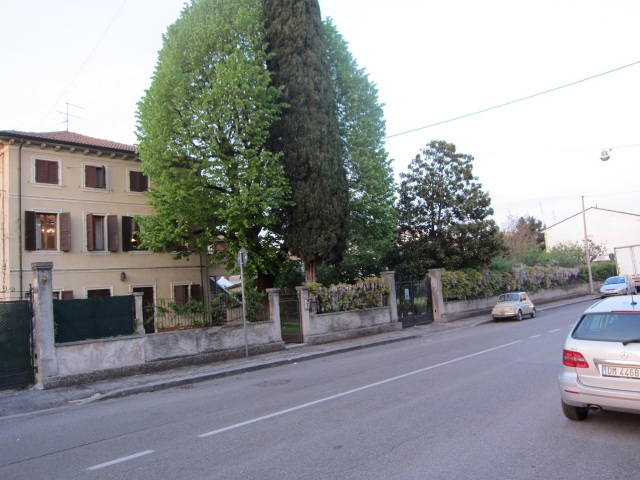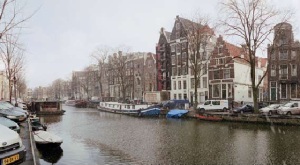An Investment Banker speaks about Africa
I just read a very clear argued case for investing in Africa by Stephen Jennings of Renaissance Capital – an investment bank specialised in emerging markets. Here are the parts I especially liked, but the whole thing is worth a read:
Over the last few years – indeed, since Renaissance entered Africa in 2005 – rarely have I found myself preaching to the converted. My usual opening statement, that the 21st Century is Africa’s Century, is usually met with some bemused smiles. This is supposed to be China’s Century, or Asia’s Century, or the Century of BRIC or emerging markets, but definitely not of Africa.
Today, I think I notice more nodding in agreement.
In the last years I have also noticed that perceptions about investing in Africa are changing, as mentioned in the Is it getting trendy to invest in Africa? post. It is an interesting development, but it actually shouldn’t be surprising. Looking at the numbers Africa has had great growth since the mid-90s – quite a long time. It’s just that perceptions started out at rock-bottom.
Here is an income per capita historical graph from Gapminder for the Ivory Coast, Nigeria and Ghana:

And the thing is, Ivory Coast is the exception above, most African countries’ graphs look like Nigeria’s or Ghana’s. And with a post conflict recovery, and Ouattara not messing up, Ivory Coast’s future graph (forgetting about the inevitable crisis dip) could look even better than those for Ghana or Nigeria.
Back to Stephen Jennings, here are his key points:
- Economic growth in Africa has averaged 6% over the last decade, greater than that enjoyed by India between 1995 and 2005.
- Today 8 of the 20 fastest growing economies in the world are from Africa. Stunning as it may sound, Ethiopia’s growth has been on a par with China’s over the last decade.
- The resurgence is broadly based – between 2000 and 2008 economic growth accelerated in 27 or Africa’s 30 largest countries. Remarkably, of 43 sub-Saharan countries only Madagascar had negative growth last year in comparison with more than a dozen such economies in the mid-90s. The naysayers’ tired refrain, ‘what about Zimbabwe’, holds little weight today.
- Analysis by McKinsey suggests that natural resources account for only a quarter of Africa’s growth with those sectors that benefit from strong domestic activity accounting for the majority.
- Similarly IMF data show that GDP growth is remarkably similar between African countries with significant resource exports and those without and the IMF has concluded that “natural resource endowments and geography…..have not been decisive factors in explaining the growth takeoff since the mid-90s”.
- In 2009 despite the massive collapse in virtually all commodity prices Africa was the only region of the world not to record a single quarter of negative growth. Just compare the performance that year of two oil-dependent and supposedly hopelessly managed emerging markets: Russia which suffered a 7.5% economic collapse and Nigeria which achieved a stunning 7% growth rate.
- As in Asia in the 1960s, the acceleration of growth coincided with the cessation or reduction of wars and conflict. Post conflict, economic growth rates increased by 10 percentage points in the DRC and 15 percentage points in Sierra Leone for example.
- Africa’s macroeconomic performance has improved very significantly – between the 1990s and the 2000s inflation has fallen 64%; government debt by 28% and fiscal deficits by 60%.
- Finally, according to World Bank indicators the majority of African countries have implemented successful microeconomic reforms and those countries implementing the most reforms and greatest trade liberalization have experienced the greatest acceleration in economic growth. By some measures Rwanda is the fastest reforming country in the world in terms of the ease of doing business. [Good work Petter!]
A Chile or Taiwan in West Africa?
Jennings on where to invest in Africa:
One of the questions I am most frequently asked about Africa is: which countries and regions of Africa will be most successful and where will the most attractive investment opportunities be? Once again, useful parallels can be drawn between Africa and Asia. We tend to talk about Asian growth as a collective concept, as if growth had been uniform across the continent in a steady process of improvement. This is, of course, misleading. Different countries have enjoyed radically different growth paths at different times.
Africa is just as much a geographic term as Asia. Loose talk about a great African revival risks confusing geography with economics.
While the acceleration of economic growth across Africa is very broadly based, there are major regional differences. When it comes to picking specific winners I confess that I prefer circumspection to bold predictions. Africa will have its Chiles and Taiwans. It will also have its Argentinas and possibly (but hopefully not) its North Koreas. How all of this will play out is unclear to me. Most accounts of why a particular country has taken off at a particular point in time amount to ex post or rear vision mirror analysis. The same applies to theories as to why today’s laggards will never make it. These theories often have a cultural or historical bent. Unfortunately their predictive power is virtually nil and they are quickly modified as the view in the rear vision mirror changes. In one decade we are told that Confucianism is a barrier to capitalism; in the next experts extol the Chinese work ethic. India’s colonial past goes from being a liability to an asset.
Wise words, and quite in line with one of my favourite books on the subject: The Elusive Quest for Growth by William Easterly.
I think though, that if political leaders behave like a Kim Jong Il, you are likely to get North Korean economic results. And it’s not so difficult to spot a potential Kim Jong Il (Mugabe anyone?), or even an Argentina-style not as crazy and ruthless but still bad leader. Respect for civil liberties and political rights is quite easy to observe (Is the leader murdering persons expressing critical views or not , what’s Amnesty saying?) and if these things are bad, usually all the rest is bad too: economic policy, economic freedom, corruption, rule of law, bureaucracy etc.
I think with Gbagbo, not long after he came to power it became pretty clear that he was bad news – I’d put him somewhere between North Korea and Argentina. But what’s interesting is that West Africa quite recently has gotten rid of almost all of the obviously bad leaders. I think it’s only Yahya Jammeh in the Gambia and Faure Gnassingbe in Togo left now, and those are pretty small countries (plus maybe Blaise Compaore in Burkina Faso too).
And there seems to be a dynamic where West African democratic leaders who are now in majority, take a stance against wannabe Mugabes in other countries in the region, as we saw in the ECOWAS stance on the Ivory Coast, and that’s great news.
What about Real Estate?
Here’s Jenning’s take on infrastructure and real estate:
The final reason I expect outsized economic growth in Africa relates to demographics and urbanization. It is no coincidence that the fastest wave of urbanization in history occurred in the last ten years, at the same time as the fastest period of economic growth in history. Population growth in general and urbanization in particular are drivers of growth, and they are happening faster in Africa than anywhere else on earth. Of the top ten fastest growing cities in the world today, one is in China, two are in India and three are in Africa. Similarly, Africa’s labour force is the fastest growing in the world.
Yes, exactly!
These types of opportunities are not limited to natural resources. Renaissance Partners, our principal investment arm, together with Kenyan partners is building a new multi-use city for 63,000 residents and 30,000 daily visitors on the outskirts of Nairobi. The next stage of the project, called Tatu city, involves USD250 million of investment in roads, water, sewerage and electricity distribution. As we prepare to break ground in Tatu city, we are beginning to roll out similar projects in Ghana, Angola and the DRC. On April 15th we launched a pilot 100 hectare development in Lusaka which is already largely sold. These are not invest-and-exit projects. They will take many years to implement, and world-class teams with Africa experience. But what we are already finding is: if you build it, they will come. Meaning, when we seed high quality projects with capital for land and infrastructure, global and domestic retailers, corporations, banks and property developers – come calling. They are ready to put their Africa footprint on our developments. It’s good business for us. It’s also good business for Africa. When these projects mature, we will have provided well in excess of 10,000 jobs from Nairobi to Lusaka and beyond, not to mention raising the bar for the quality of urban development and playing a significant role in opening up middle-class mortgage markets in these geographies.
Ok, I have to admit, these guys do things on a somewhat grander scale than me.
In urban real estate we are looking for very large conurbations in fast growing countries with reliable property title and reasonably sound rule of law. Our major real estate project is in Nairobi where, as I mentioned, we are building a new city for 63,000 inhabitants which will be one of the largest ever foreign direct investments in the country.
They face the same challenges though – reliable property title and rule of law.

















 <!–[endif]–>
<!–[endif]–>

